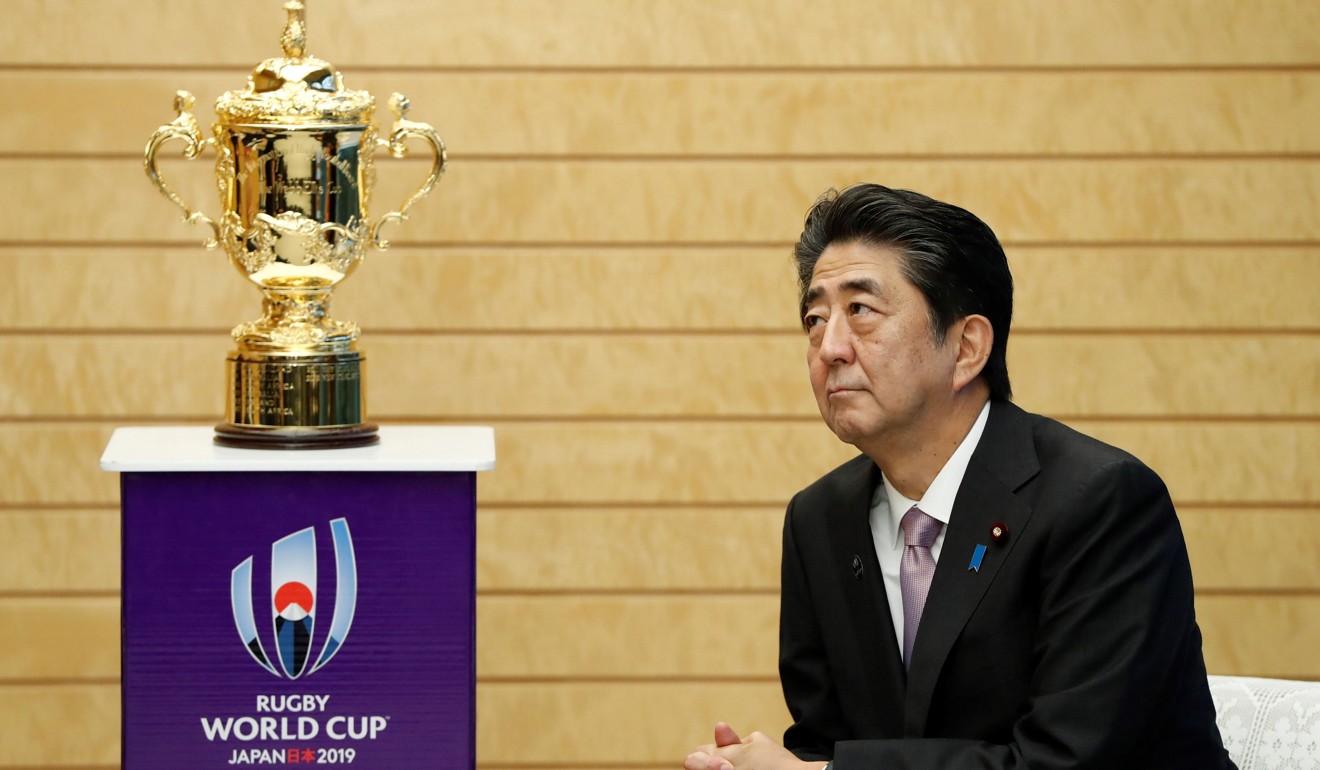
Rugby World Cup 2019: Japan’s moment in the sun begins now as country enters crucial phase as modern nation
- The land of the rising sun is set to have its moment in the sun, but an ageing population and dwindling workforce have the country’s leaders on edge
- With the 2019 Rugby World Cup and the 2020 Summer Olympics, Japan has a chance to showcase the best of its culture to the world
The last time Japan hosted an Olympics was back in 1998 when Nagano held the winter edition. To put that into perspective, Hong Kong’s handover from Britain was less than a year old.
The country’s doors are open to tourists and travellers alike, but its insular culture has given Japan and Japanese society a sense of mundane mystique. Japan’s lost decades, a period of economic stagnation which stretched from the early 1990s all the way to 2010, coupled with an aversion towards immigration, something now biting its rapidly ageing population, has saddled the country with the oddest of stigmas. To put it bluntly, many people know about Japan, but not a lot of people actually know what it is like in Japan.
This is all going to change. Close to half a million people have now descended upon Tokyo to watch their favourite nation vie for rugby supremacy, and they will be bringing their wallets and preconceived notions along with them. Next summer, close to a million people will flood the city for the world’s most prestigious and long-standing sporting event. Japanese people, whether they like it or not, are going to become hosts to all walks of life.

The country has a serious problem right now. It’s birth rate is in free fall, as for the third year in a row less than a million people were born in Japan. On top of this, Japan is getting old and has the world’s highest life expectancy (84 years). More than 28 per cent of its population is over 65 and more than half of the babies born in Japan this year can expect to live to at least 100.
Japan’s labour shortage is also well documented. There are currently 1.6 vacancies for every job application as people are spending more time drawing on government funds such as pensions, medical care and social security. The solution is simple: draw more people into the workforce, both at home and from abroad. But in Japan, tricky cultural traditions have created oddities. Women are joining the workforce, but then they are forgoing marriage and kids to focus on their gruelling careers. Japan is notorious for its lack of work-life balance.

The country’s aversion towards immigration to help fill labour gaps is also finally to be rejigged, but the numbers (Japan is expected to welcome 345,000 new immigrants over the next five years) are a drop in the bucket for a country that has 126 million people. A slow burn could soon catch fire for Shinzo Abe, a more than competent politician who has pulled many levers and tweaked various valves to help correct course. The answers for Abe and the country’s leaders rest in its ability to make one of the hardest demographic turns ever orchestrated by a modern industrialised nation: no small feat indeed.
What lies ahead is a serious chance for Japan to showcase itself to the world and help soften a few of the oncoming blows. Courting investment and talented workers is much easier when you’re plastered all over the headlines for all the right reasons. The international media is going to comb, poke and prod its way through the country from now until the end of next summer, exposing Japan’s culture and society for better or worse.
This could be great news for a country looking to put itself on the map, but precedent shows it can also backfire. Brazil is a perfect example. Back in 2014 the emerging nation, which many believed was about to enter a new age of economic progression, held the Fifa World Cup, but its home nation bowed out in spectacularly embarrassing fashion by losing 7-1 to Germany in the semi-finals. Then, two years later Rio de Janeiro hosted the 2016 Summer Olympics, but what was supposed to be a carnival for all involved felt more like a nightmarish parade.

The press picked apart the city and the country’s many social ills, highlighting the favelas’ extreme poverty, high crime rate and shining a light on a sporting event that felt like it was airdropped in for the rich and built on the backs of the poor. The country then plunged into its worst economic recession to date for a variety of reasons, got caught up in what felt like an endless corruption probe, and has yet to recover.
Japan and Brazil are by no means similar, but if the Asian nation is taking notes, they best be equipped to have answers for various questions the international community will soon pose en masse. The land of the rising sun is about to have its moment in the sun, and if all goes well, could prove to be a turning point for a country standing at a precipice.
If it goes south, one of East Asia’s most promising superpowers could look back on the next year as a bellwether of storms to come.

